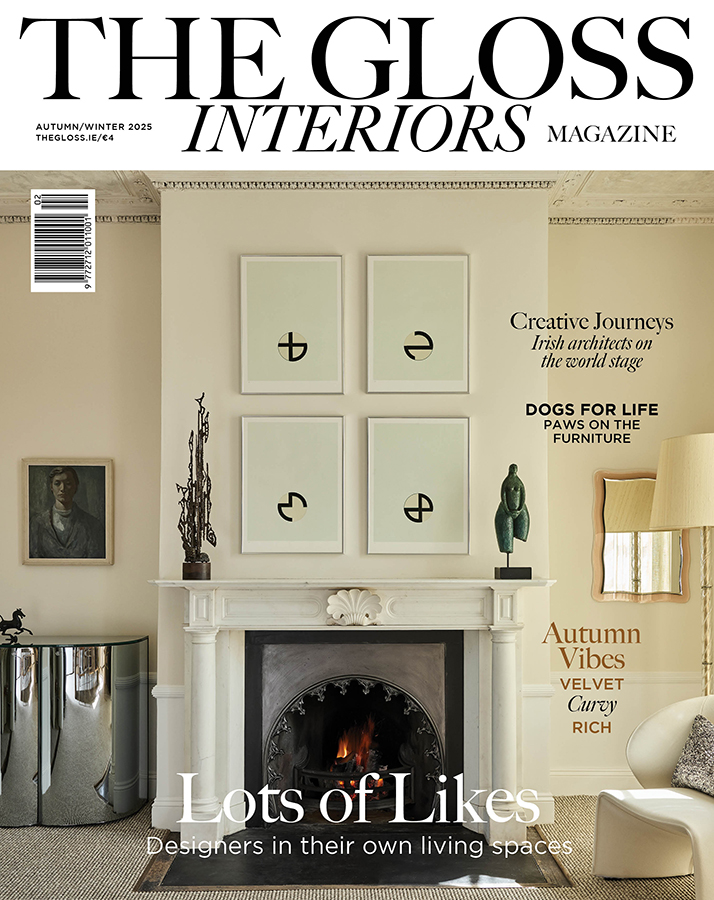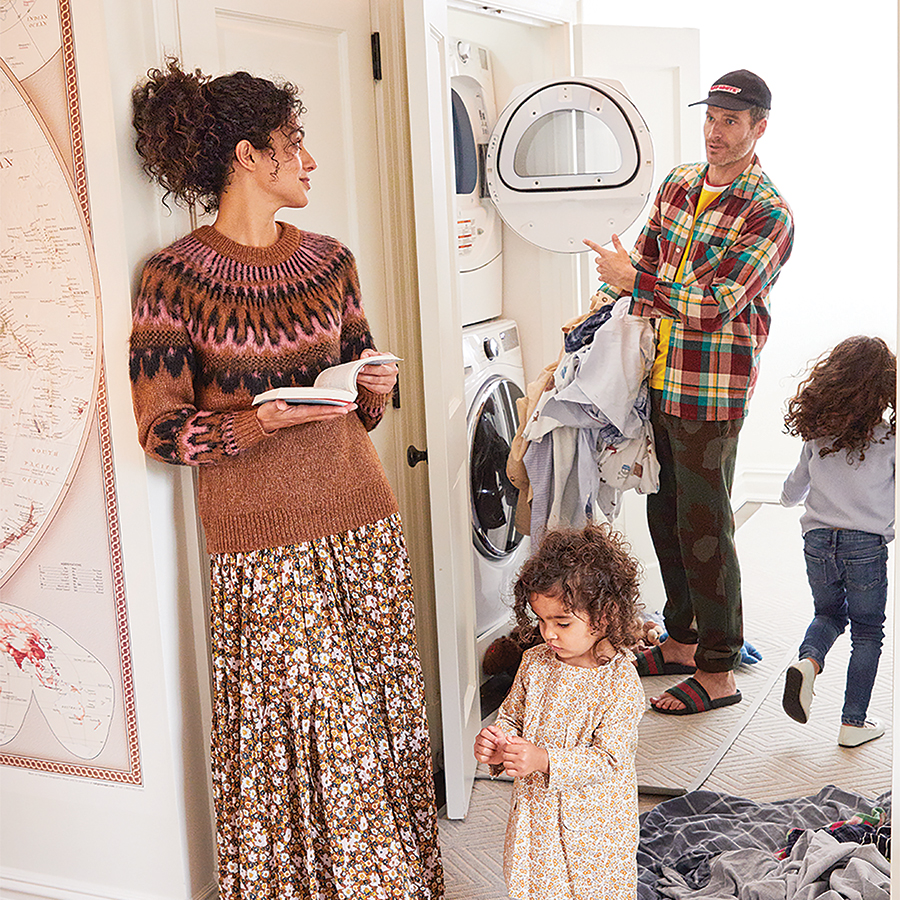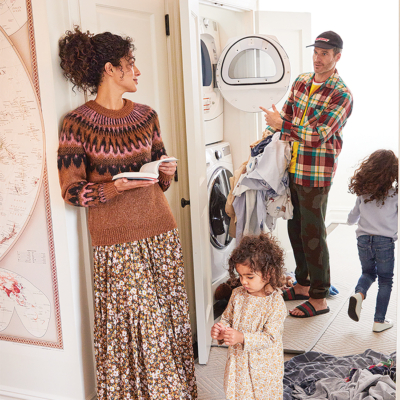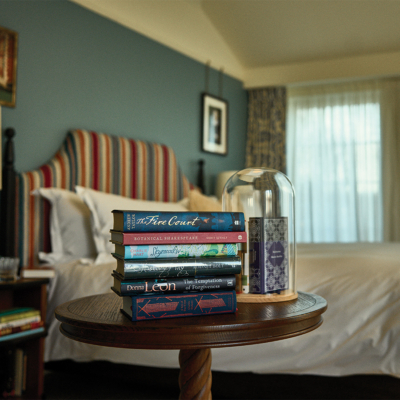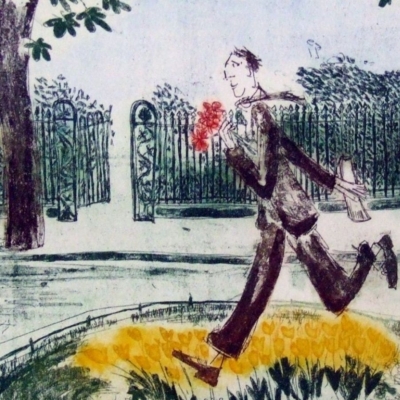Trad wife, stay-at-home-girlfriend, sugar babies: in a swerve for feminism, the cultural conversation is awash with a patriarchal upholding of gender roles. Namely: women being taken care of by men. If it’s so bad, why are so many of us fantasising about it?
In a work meeting, I make a crack about how I “stupidly” married for love, not money. My husband and I routinely joke about how one of us should have married rich, and kept the other one – the real love – as a side piece. Myself and my (gay) friend routinely joke about our need for a rich husband to fund our aspirational lifestyles. At what point did we conflate love with money? Or, perhaps the point is that they’ve never been more intertwined.
Funnily enough, my (supposed?) jokes are culturally apropos: women desiring to be taken care of are being widely discussed in the discourse. On TikTok, the “trad wife” movement is embraced with alacrity, bolstered by its sibling cohort SAHGs (stay-at-home-girlfriends). Equally, the viral song Man In Finance created by TikToker Megan Boni as a sorry, not sorry comment on those “looking for a man in finance, with a trust fund, 6’5, blue eyes, finance …” racked up millions of views.
Perhaps the peak of this occurred when, on The New York Times Modern Love podcast model, actress, writer and single mother Emily Ratajkowski discussed how it’s a woman’s right to choose help without having to fear she is playing into traditional gender stereotypes, or reinforcing them. “I take care of so much in my life, my son, my home, his schedule, my schedule, my career, the burden of the finances is on me, I don’t have a family supporting me financially and I often think about how much I want to be taken care of. I experience that with my female friendships in different ways … How sexy that can be in a romantic relationship is one I have tucked away in some ways because it feels difficult to imagine someone who is more capable than me or who could understand my needs in that way,” Ratajkowski says.
Call me old fashioned (or as Carrie Bradshaw proffered, “in a financial cul-de-sac”), but something in Ratajkowksi’s comment resonated. Let’s be clear: I’m not advocating that a woman who is feeling a tad financially precarious should engage a handsome besuited stranger for an affair. Nor, do I believe that we should raise our daughters (or sons) to marry rich. (Just the act of typing these words feels inherently wrong, so reductive they are for the equality movement.) Initially, I engaged with these white-picket-fence fantasies on the basis that they were aesthetically pleasing froth: a dash of trivial escapism. If only a little deranged. Look: the Christy Dawn dress! The cut-flower garden! The asparagus tart! I wouldn’t mind baking a pie right now, I think, staring down the barrel of another deadline, another frozen salmon dinner, hair scraped into a questionable top-knot (on the precipice of being pretty deranged myself.)
The trad wife was a harmless mental holiday from my happily liberal relationship. The 50:50 split of our money, the reality of us both working as hard as each other to make ends meet, my husband’s joke that he would absolutely consider becoming a house dad if we ever had kids and I had the better salary (behold: the perils of the feminist husband – they’re fantastic until they put their money where your mouth is). Scratch the surface, however, and these online trends are often predicated by a strong patriarchal ethos – throw in a far right leaning and a peppering of extreme religious beliefs – whereby women are domesticated, raise the kids, and are entirely financially dependent on men. Ick. Our snap judgement of such relationships is but an indicator of our polarised society. Surely, it’s a woman’s right to choose? More so, can I note the recipe, covet the enamel bakeware, all the while resting upon my moral superiority?
If the idea of being taken care of is so “wrong”, why are so many of us thinking about it?
“There aren’t many women who would want to admit to being susceptible to such a stale and clichéd fantasy because it’s infantilising. We want to see ourselves as being grown-ups, self-reliant, hard-working and capable,” says Maggie Armstrong, the Dublin writer who released her debut collection of short stories Old Romantics (published by Tramp Press), which riffs on the transactional nature of contemporary courtships.
Indulge me. The current climate has a lot to answer for: a silent recession. A reprehensible housing crisis. A dearth of affordable childcare. Women have never been more burdened. More hustling. More anxious. We’re well aware that “having it all” is a trope as much as a trap. Spoiler: it’s designed to make us feel inadequate. And yet we can’t seem to work our way out of its clutches, such is the gilded cage of second-wave feminism.
“It’s extraordinary how women are expected to perform more and more in their working life but, at the same time, the core responsibilities, to children and oneself, remain. At this point in history, women are exhausted,” Armstrong says.
In Ireland, women have gained parity in law – but what about in life? In 2021, the Gender Pay Gap Information Act became mandatory, but according to a 2024 survey conducted by PWC, Irish women still make an average of 11.2 per cent less than men. Female participation in the workforce plays a key role in reducing that figure, experts say. The problem lies at home, too.
Emilie Pine, author of the critically-acclaimed book of essays Notes To Self and novel Ruth and Pen, points out: “The referendum to change the phrasing around mothers in the home failed – but, really, quite apart from phrasing, we won’t have equality until mothers aren’t subjected to the risk of financial precarity if they aren’t married or leave marriages,” she says.
As a card-carrying feminist – raised by a part-time working mother who encouraged me to be staunchly financially independent – I know, in truth, that being taken care of by a man isn’t as alluring as it sounds on paper, as much as I know that it’s simply not for me. But wanting the “saucy Disney fantasy of being swept up by a besuited stranger” according to Armstrong – even for a moment –isn’t all that surprising. Is it?
Emphasis on fantasy. “When my first child was about four months old – a month before I was due to go back to work full-time – I began buying lottery tickets,” the journalist and author Emily Hourican tells me. “I’d never played before and haven’t since. As a gambit, it was pretty easy to interpret. I was desperate not to leave him for nine hours every day, and so was reaching for a fantasy solution,” she says.
Perhaps, fantasy is what remains when the odds feel stacked against you. Elder millennials are hurtling towards middle age, but rather than plumping for sports cars (the adage of the mid-life crisis usually bestowed upon the pale, stale and male), their aspirations are more down to earth: buy a house, have a child, achieve the life goals that for the previous generation were a given, not a gift. What happens when we are actively fetishising the financial prowess of others? The holidays. The home renovations. The Celtic Tiger hangover that sees some negotiate the world with apparent ease. As one friend put it recently, “My mother told me recently, our generation would be a lot better off if we didn’t splurge on Deliveroos or take away coffees, unlike them. What she neglected to mention was that at my age, her and my dad owned two properties – and a boat.”
For context, this isn’t a typical inter-generational give out. Rental and property prices in Ireland have nearly doubled since 2013, with the number of young homeowners plummeting from 60 per cent to 27 per cent in the same period. If my husband offered to shower me with a frivolously expensive gift, I wouldn’t let him: as two people working in creative fields, I could make a list of where that money ought to be rerouted – a house deposit, a sky-high electricity bill, a kitty for a holiday that constantly disappears over the horizon, savings (what a gas!). The cost of living today is prohibitive, no wonder we’re entertaining make believe. Perhaps him and I both require a rich husband?
Literary canon is flooded with these age-old affairs: a young girl is swept up by a worldly older man only to sacrifice her autonomy in the process. Edna O’Brien’s The Lonely Girl sees protagonist Cait fall hard for an American filmmaker Eugene, only to gush over his buying her “a grey astrakhan with a red velvet collar”. Off the page, O’Brien had an entanglement with then married Irish-Czech novelist Ernest Gebler before eloping with him to the Isle of Man. In Daphne Du Maurier’s Rebecca, the doe-eyed ingénue marries a wealthy widower only to become haunted by his former wife. The men were distinguished, the women naive, unsophisticated, homely – rudderless, at times.
By contrast, there’s a convenient term for those who draw empowerment from these kinds of transactions: the sugar baby. In her debut novel Cleopatra and Frankenstein, Coco Mellors brings to life the character of Zoe, an NYU student who – disillusioned with her career as a fledgling actor and cut off from family money – joins an app to provide companionship for men with “money glows”. A platonic encounter with a Japanese businessman, with whom she watches Marlon Brando movies and has rousing conversations about life, spurs her to embrace her own sexuality. Other accounts are more sinister. Indie erotic thriller Sugar Baby unravels what happens when an enterprising sugar baby accepts an offer of $30,000 to move in with her sugar daddy for a week, only to uncover the dark secrets lingering within his home. Director of the film Lauren Garroni (who also happens to be co-host of the excellent and wry Every Outfit podcast, spurred from a Sex and the City Instagram fan account) reworks a clichéd theme through a feminist and queer lens. So far, so bingeable.
Forget income, though: why aren’t we talking about security? (Or the lack thereof in modern living.) Rachel O’ Dwyer, a lecturer in digital cultures at NCAD believes online movements such as #tradwife are simply feminine expressions of precarity. “If we hold with “lean in” and “girl boss” culture then this is purely entrepreneurial. And many of these women are influencers and content creators first and foremost. One of the things that fascinates me about the language of Reddit sites, such as RedPillWomen, where women come together to embrace so-called traditional feminine values and find men, is how close to the fore the economics and pragmatics of the situation is; they speak about their bodies and accomplishments as economic goods, but they also speak quite frankly about the real economics of financial dependence, the struggle of getting by on a single income. It’s all very Jane Austen, only with new acronyms like sexual market value (SMV) and relationship market value (RMV) where once we might have spoken about a “well-rounded, accomplished” woman,” she says.
Perhaps, the issue isn’t gender politics, or money. After all, finances are just one part of being taken care of. Maybe what’s really on the table is a deficit of care. What Ratajkwoski is driving at is craving a break from the emotional labour of being a single working mother. “The fact of the matter is there’s nobody to sit down with in the evenings who says “take a load off”. There isn’t anyone there to do that physically or metaphysically,” Armstrong, who is also a single mother, says. In fact, the majority of straight women would tell you they fantasise more about having another wife, than a rich husband. The desire to clone themselves to help corner the workload of being an employee, a wife, a mother, a daughter, household runner, a sexual partner is palpable. “There’s a financial meaning in care but also many of us crave just to be looked out for,” Armstrong reminds. I admire Ratajkowski’s attitude around offloading some of that metal pressure. Even if it’s purely the emotional burden, or doing the laundry – or monetary, for that matter. In a safe space, man or woman, we shouldn’t conflate being able to ask for help with upholding gender stereotypes. Side note: even if we were, the bed-rock of the feminist movement is a woman’s right to choose. Dangerously, however, there’s a tipping point. “Like so many fantasies, it entails a surrender of control. And there’s a reason why these are fantasy, not reality. Because a lack of control isn’t actually very desirable,” says Hourican.
Perhaps, it’s not men, or the trad wives and their marigold linen aprons we’re rallying against, it’s an unfair society that’s tipping many of us into financial nihilism. What can we do? “The response to this should be to agitate for change – the dignity of universal social income, for example – not to go looking for a knight in finance armour to “save” us by whooshing us into the land of second homes and yachts. Having one’s own money is fun. It feels good. Financial responsibility is a burden but also a strength. We just need to find ways to close the gap between what we earn and what we require to be safe and happy,” Hourican says.




